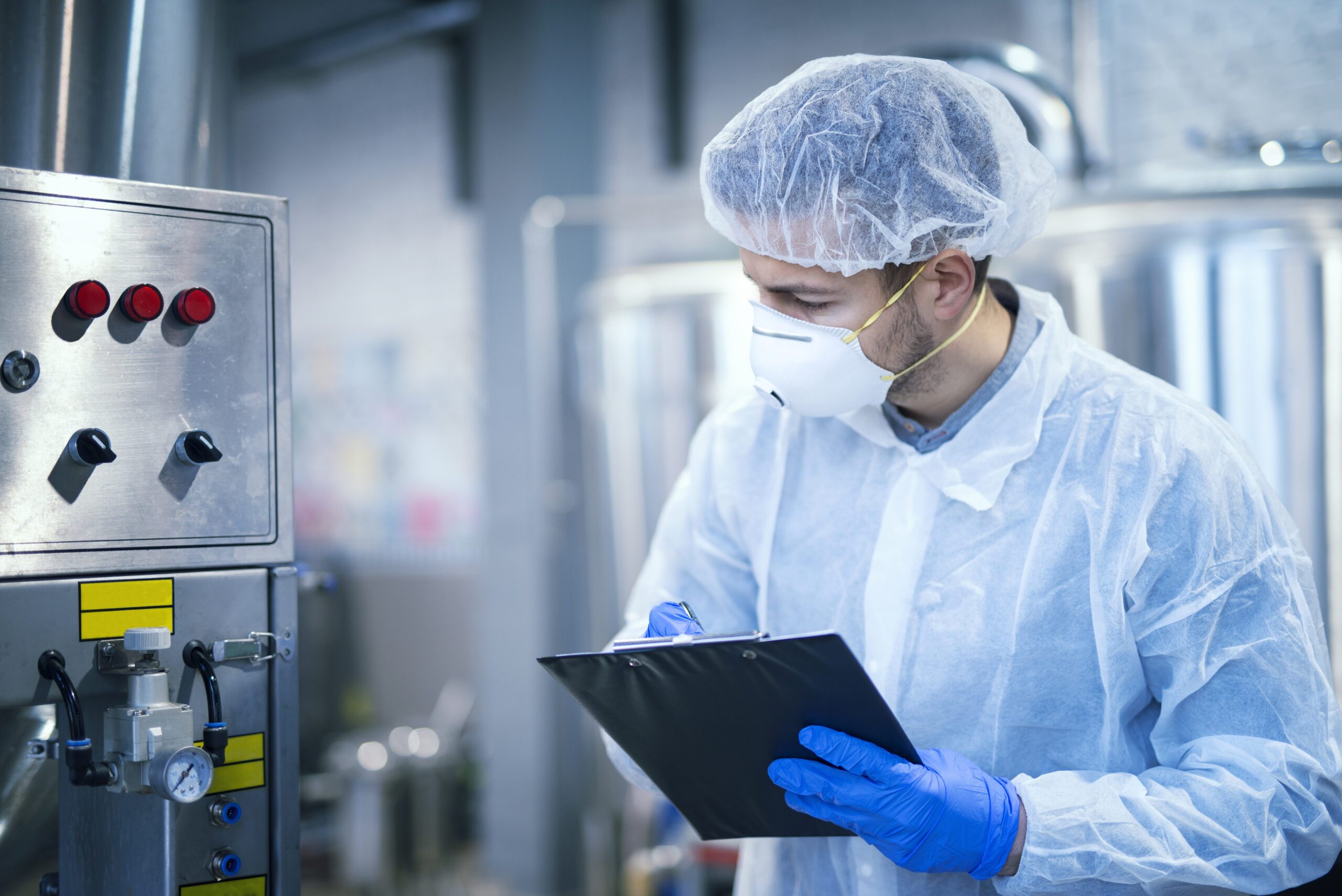Product & process innovation
Hydrogen Peroxide Vapour decontamination of dry ingredients
01
Oct

Published on: 01/10/2024
Dry and dehydrated ingredients are widely used in the food industry. These internationally traded products are generally contaminated by a microbial flora composed of pathogenic bacteria, spore-forming bacteriaIn addition, the company is exposed to a wide range of toxins, including mycotoxins produced by certain molds during storage. Decontamination is therefore advisable ; However, dry products are difficult to process, as they are sensitive to humidity and high temperatures. The CTCPA has worked for several years in Collective Research (VAPDEC then OXYMORE projects - reports available on request) on an innovative technology for chemical decontamination with hydrogen peroxide vaporin collaboration with our partner UniLaSalle in Beauvais.
Hydrogen peroxide is quite commonly used in aqueous solutions ("hydrogen peroxide") at a concentration of 5-30% in water, for example for decontaminating surfaces, equipment (solutions for Cleaning/Decontamination In Place); and packaging for aseptic packaging operations. Hydrogen peroxide, whose physicochemical properties are similar to those of water, can also be used in vapor form.
Hydrogen Peroxide Vapor (HPV) is produced by a generator that produces hot air, humidified with hydrogen peroxide vapor from a preheated air stream and a hydrogen peroxide solution (at a concentration of 10 to 35%). This is not an aerosol; the gas mixture between the air stream and the hydrogen peroxide is made according to the mixture's dew point, in order to maintain it in the gaseous phase, by playing on various parameters (temperature, air and liquid flow, H2O2). Warm humid air containing a certain concentration of HPV is then brought into contact with the product to be treated in a confined enclosure for a given period of time.. The use of the biocide in gas form ensures uniform distribution of the oxidizing agent, thanks to an automated dispersion system. VPH requires relatively short contact times, and also has a good safety profile as it spontaneously decomposes into water and oxygen, with a fairly short half-life. Dew point control, to ensure that HPV does not condense, is achieved between the pressure of the compressed air used, the temperature in the mixing chamber and the concentration of the H2O2 injected into the hot air stream (temperature 40 to 100°C).
This technology is already used for packaging and workspace applications. The innovation proposed by the CTCPA involves applying this technology directly to food matrices.
By its very nature, this technology can only reduce contamination on the surface of the food, having no effect at depth, except for porous dry foods. This gas biocide is therefore well suited to dry, divided solid foods: powders, spices, dehydrated vegetables; and also for decontaminating packaging surfaces in contact with food, with a view to aseptic filling.
Hydrogen peroxide has an antimicrobial effect on both vegetative cells and spores, with notable differences between species. Logically, spores are more resistant to hydrogen peroxide than vegetative cells.
For example, hydrogen peroxide in vapor form is effective for decontaminating surfaces contaminated with Clostridium botulinum and Clostridium spp. For high contact times, the D values determined for toxigenic and non-toxigenic Clostridium strains were 1.46 min for Clostridium botulinum and 4.38 min for a strain of Clostridium spp. non-toxigenic, respectively.
Chemical decontamination, carried out at moderate temperatures, acts only on the surface, reducing the impact on the food matrix. Depending on the concentration of hydrogen peroxide used, however, some discoloration effects may be observed. Depending on the product being treated, it is essential to carry out a feasibility study to establish the treatment conditions and their impact on the product, as well as to verify the safety of the treatment.
The VPH process is already widely used in the pharmaceutical and medical sectors, for decontaminating environments and surfaces. In the food industry, hydrogen peroxide is widely used, most often in liquid form for decontaminating equipment and packaging. However, there are no authorizations to date for direct application on food products.
The use of biocides in general as processing aids for the decontamination of plant products is possible, but in France must be subject to prior assessment by the DGCCRF and Anses (prior authorization system), followed by authorization by implementing decree (regulations on processing aids: Decree no. 2011-509, currently being revised by the DGCCRF; Decree of October 19, 2006).
For the moment, no equipment manufacturers have been identified to offer complete turnkey systems. On the other hand, hydrogen peroxide vapor generators already exist on the market (STERIS www.steris-healthcare.fr ; BRONKHORST www.bronkhorst.fr/fr/ These generators need to be coupled to thermostatically-controlled mixers for stirred processing.
It is also necessary to characterize the impact on the organoleptic, nutritional and functional properties of treated products, including knowledge of any degradation products, and of any substances neoformed by oxidation of food matrices. Finally, it is essential to have perfectly validated analytical methods for the detection of H2O2 in processed food matrices.
These data are necessary for a well-founded assessment of the safety of the process for the consumer.
The CTCPA is equipped with a generator and reactors adapted to different dry products (powders, solids, etc.). Feasibility tests can be carried out on small samples (300-500 g); an industrial scale-up is conceivable for larger quantities, with a generator that can be moved around the plant.







